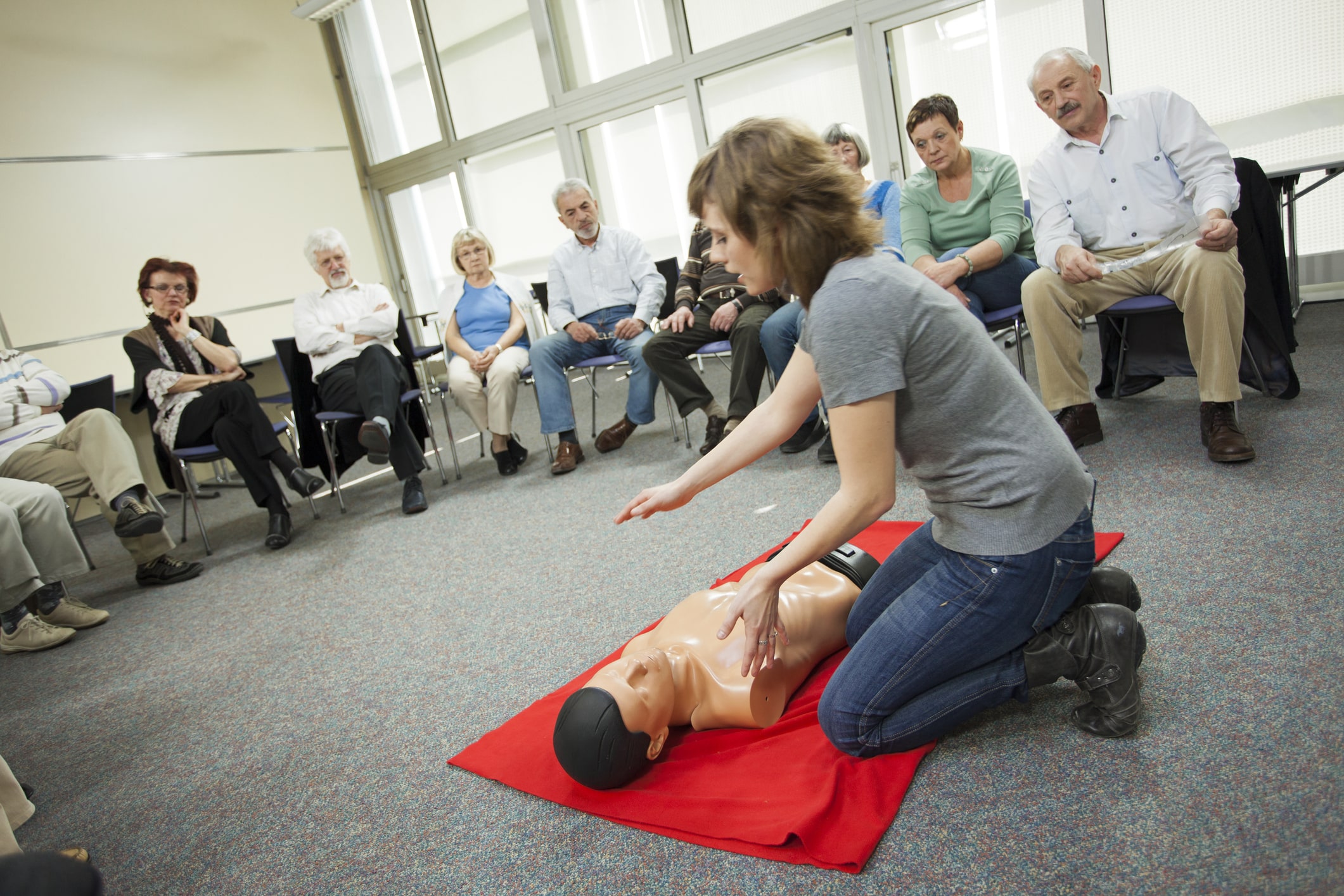American Heart Association© Group CPR Discount Classes in Minnesota

About Group Classes
Safety Training Seminars can come out to your place of business at any time on any day of the week to conduct BLS, CPR, and First-aid training courses. Our friendly instructors arrive on time, and bring out all the necessary supplies and equipment to conduct a fun and informative safety training course.
Alternative: If organizing a class at your location is complicated, you can send your staff out to take classes at one of our 57 offices located throughout Northern California.
Ask about Promo Code discounts.
More Information About Group Classes
The Value of Group CPR Training Classes in Minnesota
In a state known for its strong sense of community and commitment to safety, Minnesota has taken significant strides in promoting preparedness through group CPR training classes. These classes are not just a valuable resource; they are a lifeline that can potentially save lives in emergencies. As individuals learn the essential skills of cardiopulmonary resuscitation (CPR) in a supportive group environment, they become equipped to respond effectively during critical moments.
This article will delve into the significance of group CPR training classes, their benefits for participants and organizations, and the various settings where this training is particularly beneficial in Minnesota.
Understanding CPR: The Lifesaving Skill
Cardiac arrest can strike anyone at any time, often without warning. According to the American Heart Association, more than 350,000 out-of-hospital cardiac arrests occur in the United States each year, emphasizing the urgent need for effective response measures. CPR is a crucial skill that can double or even triple a person’s chance of survival if performed immediately.
Group CPR training classes are designed to equip individuals with the knowledge and skills needed to perform CPR effectively. Participants learn how to recognize the signs of cardiac arrest, perform high-quality chest compressions, and use automated external defibrillators (AEDs). By practicing these skills in a group setting, individuals not only gain technical knowledge but also develop the confidence to act decisively in emergencies.
The Benefits of Group CPR Training Classes
Enhanced Emergency Preparedness
Group CPR training significantly enhances emergency preparedness within organizations and communities. When a group is trained together, the likelihood of having someone available to respond in an emergency increases dramatically. This collective readiness can lead to quicker and more effective action during a medical crisis, which can ultimately save lives.
Team Building and Collaboration
Participating in CPR training as a group fosters teamwork and collaboration. Group exercises often require participants to work together to solve problems and practice emergency response scenarios. This not only builds relationships among participants but also reinforces the importance of communication and coordination in emergencies. Such teamwork can make individuals feel more connected and supported, which is crucial in high-stress situations.
Cost-Effective Training Solution
For organizations looking to provide CPR training to employees or members, group training can be a more cost-effective solution than individual courses. Many training providers in Minnesota offer discounted rates for group classes, making it a financially sensible option for schools, businesses, and community organizations. By training multiple individuals at once, organizations can maximize their investment in safety training.
Customized Training for Specific Needs
Group CPR training can be tailored to address the specific needs and risks associated with different settings. For example, a workplace may require training focused on adult CPR techniques, while a school might need training that includes child and infant CPR. This customization ensures that participants receive the most relevant and applicable information for their environments, further enhancing their preparedness.
Increased Confidence to Act in Emergencies
One of the key outcomes of group CPR training is the increased confidence participants feel in their ability to act during an emergency. Many individuals hesitate to perform CPR because they are unsure of their skills or fear making a mistake. Through hands-on practice and guidance from certified instructors, participants not only learn the correct techniques but also gain the reassurance that they can make a positive impact during critical moments.
Conclusion: Empowering Minnesota Through Group CPR Training
Group CPR training classes in Minnesota represent an essential investment in community safety and preparedness. By enhancing emergency response capabilities, promoting teamwork, and building confidence, these classes empower individuals to act decisively in emergencies.
As communities in Minnesota continue to prioritize safety, organizing group CPR training can ensure that more people are equipped with life-saving skills. Whether in schools, workplaces, or community organizations, the ripple effect of training will help create a safer environment for all Minnesotans. Together, we can cultivate a culture of readiness and resilience that extends throughout the state.
FAQs
Who should attend group CPR training classes in Minnesota?
Group CPR training classes are suitable for anyone interested in learning life-saving skills, including parents, teachers, caregivers, healthcare professionals, and members of the general public.
How long do group CPR training classes typically last?
Group CPR training classes usually span a few hours, depending on the training provider and the depth of instruction. Classes typically include a combination of theoretical instruction, hands-on practice, and skill demonstrations.
Is there a renewal requirement for group CPR training certification?
Yes, CPR certifications are typically valid for two years, after which individuals are required to undergo renewal courses to maintain their certification. Renewal courses often include updates on guidelines and protocols, as well as opportunities to refresh and practice essential skills. Renewing CPR certification ensures that individuals stay current with the latest best practices in CPR and are prepared to respond confidently to emergencies.
